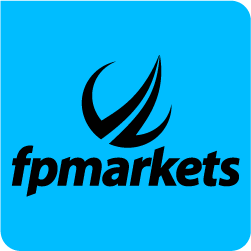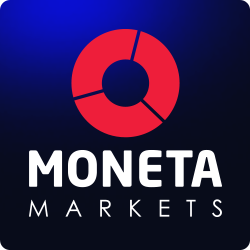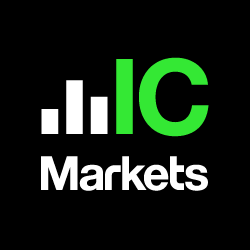Top Brokers in the MENA Region
The MENA region, which comprises countries in the Middle East and North Africa, has become one of the most important centers for Forex trading in view of its strategic location, growing financial markets, and high interest in retail and institutional investment. Leading the way within this region is normally the United Arab Emirates (UAE), with its strong regulatory framework and exciting environment for Forex trading.
Forex trading in the MENA region is influenced by special cultural and regulatory aspects. Many brokers offer Islamic Forex accounts, under which Muslim traders can operate by eliminating swap fees or interest over overnight positions. That, of course, makes the region really attractive to Forex traders looking for ethical and compliant trading options.
The UAE, Saudi Arabia, Egypt, and Qatar are some of the important countries that make up the MENA trading landscape, though the UAE takes the lead with its current state of infrastructure and the presence of international brokers. The regulatory environment is well developed with authorities such as the UAE's Securities and Commodities Authority (SCA), which oversees activities related to Forex trading to ensure transparency and security.
The following is a highlight of the top brokers in the MENA region, considering important features, pros, and cons that will help traders make informed decisions.
List of best Forex brokers in MENA in 2025
FP Markets: A global broker offering versatility for MENA traders
FP Markets is one of the well-established global Forex and CFD brokers known for offering competitive pricing and diverse trading options. FP Markets was established in 2005, being regulated by ASIC (Australia), CySEC (Cyprus), FSCA (South Africa), FSA (Seychelles) and CMA (Kenya). Generally, it has been able to maintain a strong reputation for its transparency, security, and outstanding trading conditions. Definitely one of the key reasons why FP Markets stands out with traders from the MENA region, particularly in the UAE, is its tailor-made solutions that include Islamic accounts compliant with Shariah law.
A really wide range of trading instruments is offered by the broker: Forex, commodities, indices, shares, and cryptocurrencies. More than 1,000 instruments are available, one of the widest selections on the market. Traders also appreciate the RAW accounts with spreads from 0.0 pip, which makes it a great choice for scalpers and high-frequency traders.
FP Markets supports multiple trading platforms, including the industry-standard MetaTrader 4 (MT4) and MetaTrader 5 (MT5), well-suited for both beginners and advanced traders. Besides, the broker features cTrader, known for its user-friendly interface and a range of sophisticated execution tools, integrating TradingView, popular for its advanced charting functionality and community-driven trading insights.
MT4 users can make use of the Traders Toolbox, which is a suite of advanced 12 tools, from economic calendars to risk-management tools, in order to improve the effectiveness of their trading strategies.
The broker provides rapid execution, working with tier-1 liquidity providers in order to reduce slippage, even in periods of strong market movements. FP Markets also caters well to the needs of traders in MENA, offering localized payment methods and 24/7 multilingual support. Still, more thorough localization for Arabic-speaking clients may make it even more appealing.
Pros
Competitive spreads, starting from 0.0 pip.
Supports multiple platforms, including MT4, MT5, cTrader, and TradingView.
Offers Islamic accounts compliant with Sharia law.
Fast execution with tier-1 liquidity providers.
Excellent educational resources and tools like the MT4 Traders Toolbox.
Cons
Withdrawal fees for some payment methods.
Limited localized support for some countries in the MENA region.
The demo trading account is limited to 30 days.
Moneta Markets: Simplified trading for Middle Eastern beginners
Moneta Markets is a relatively young broker that has managed to become one of the most reliable names among traders and investors in the UAE. Being licensed by the SCA of UAE and the FSCA of South Africa, Moneta Markets provides a secure environment for trading with a strong emphasis on accessibility and simplicity.
With its support for Islamic accounts, Moneta Markets is a great option for traders in the Middle East looking for ethical and compliant trading solutions.
Another key feature of Moneta Markets is its proprietary trading platform, designed to simplify trading as much as possible without compromising on functionality. Further, Moneta Markets has its own mobile app AppTrader and CopyTrader app for social trading.
Moneta Markets also supports MetaTrader 4 and MetaTrader 5 to ensure the compatibility of popular trading strategies and automated systems developed by the more conservative traders.
Traders can access over 1,000 instruments, with a leverage ratio as high as 1,000:1, including Forex, commodities, indices, shares, and ETFs, with competitive spreads as low as 0.0 pip available through its ECN accounts. Moneta Markets also offers an STP account with spreads starting at 1.2 pip.
The broker also provides educational material such as webinars, tutorials, and analysis of the markets, all tailor-made to ensure that beginners master the art of trading. The minimum deposit requirement of $50 makes this broker particularly inviting to new traders who prefer to start with lower investments. In addition, whenever you fund your live account with $500 or more, you get a 50% Cashback bonus.
While Moneta Markets excels at its user-friendly and accessible nature, it lacks the more advanced tools and asset variety that professional traders would find interesting. However, with its strong focus on localized and Arabic support and solutions catering to the region, it surely becomes a strong contender among traders within the MENA region seeking simple and reliable trading options.
Pros
Proprietary platforms designed for ease of use.
Supports MT4 and MT5 with advanced trading features.
Islamic accounts tailored for Middle Eastern traders.
Supports Arabic, catering specifically to Middle Eastern traders.
Competitive spreads and low minimum deposits.
Cons
Limited advanced tools compared to more established brokers.
Customer support may not be localized for all MENA countries.
Conversion fees may apply on non-supported currencies.
IC Markets: Trading with industry-leading conditions
IC Markets is one of the world's largest Forex and CFD brokers, known for its ultra-low spreads, high-speed execution, and advanced trading infrastructure. Founded in 2007, and regulated by FSA (Seychelles), ASIC (Australia), and CySEC (Cyprus), IC Markets is one of the most popular choices among UAE traders. In this regard, IC Markets provides MENA region traders with a safe and fast trading environment and is also equipped with Islamic accounts that eliminate swap fees in order to comply with Sharia law.
IC Markets is well suited for scalpers, day traders, and algorithmic traders due to its spreads starting at 0.0 pip and the possibility of accessing deep liquidity from tier-1 banks and liquidity providers. These conditions assure minimal slippage and fast execution of orders, even under the most volatile market conditions. Such accuracy is very important for traders in the MENA region, especially when taking advantage of short-term market opportunities.
The broker offers multiple platforms: MetaTrader 4, MetaTrader 5, and cTrader. MT4 and MT5 serve well for technical analysis and automated trading strategies, while cTrader provides users with advanced order management and professional-grade execution.
IC Markets provides an exceptionally broad instrument basket, with more than 2,250 assets, including Forex, commodities, indices, stocks, and even cryptocurrencies, which gives traders the opportunity to build a diversified portfolio. Moreover, the broker offers leverage of up to 500:1, which imparts great flexibility in position management, although traders must use caution due to the high risk associated with high leverage.
For traders in the MENA region, IC Markets is a decent choice because of its commitment to transparency, cutting-edge technology, and great trading conditions. However, the broker just needs to improve its already strong customer support with more localized services for Arabic-speaking traders in order to better meet regional needs.
Pros
Ultra-low spreads starting at 0.0 pip on RAW accounts.
Supports MT4, MT5, TradingView and cTrader platforms.
Deep liquidity ensures fast execution and minimal slippage.
Offers Islamic accounts for Sharia-compliant trading.
The website is available in the Arabic language.
Strong regulatory credentials with ASIC and CySEC oversight.
Cons
Higher minimum deposit at $200, compared to some competitors.
Limited localized customer support for smaller MENA markets.
Swap-free accounts may have restrictions on certain instruments.
MENA region traders operate under Seychelles regulation.
Tickmill: Low-cost trading with a regional focus
Tickmill has cemented its reputation as a trusted broker, offering competitive trading conditions that appeal to both beginner and experienced traders in the MENA region. Known for its tight spreads starting as low as 0.0 pips and low commission rates on Raw accounts, Tickmill ensures cost-effective trading for Forex enthusiasts.
Tickmill Ltd provides access to CFDs on over 60 currency pairs, indices, commodities, stocks, cryptocurrencies and bonds, making it a versatile choice for traders looking to diversify their portfolios. It supports MetaTrader 4 (MT4) and MetaTrader 5 (MT5), providing advanced charting tools, automated trading capabilities, and user-friendly interfaces for traders of all levels. In addition, Tickmill Trader, available for Tickmill Ltd clients, enhances trading flexibility with seamless access via web and mobile apps, ensuring markets are always within reach. With leverage of up to 1:1000, Tickmill Ltd caters to traders with varying risk appetites.
Tickmill’s strong regulatory oversight under FCA (UK), CySEC (Cyprus), FSCA (South Africa), and FSA (Seychelles) ensures a secure trading environment. The broker also caters to Muslim traders with swap-free Islamic accounts, eliminating overnight interest charges to comply with Sharia principles. With an office in Dubai, its efficient customer support and Arabic language availability, Tickmill is an excellent choice for MENA traders.
Pros
Ultra-tight spreads starting from 0.0 pip.
Low commissions and competitive fee structures.
Access to MT4 and MT5 platforms for advanced trading.
Offers swap-free Islamic accounts.
Multiple regulations for secure trading.
Cons
Limited educational resources compared to other brokers.
The product range outside Forex and Stocks could be expanded further.
Deriv: Accessible trading with innovative features
Deriv is a rising star in the MENA Forex market, offering user-friendly platforms and innovative trading solutions. With over 300 tradable instruments, including Forex pairs, commodities, stocks, indices, ETFs, and cryptocurrencies, Deriv provides an accessible gateway for traders seeking variety and flexibility.
The broker’s proprietary platform, Deriv Trader, is tailored to different trading styles. Whether traders prefer manual execution, automated strategies, or options, Deriv has a solution. Additionally, the broker supports MetaTrader 5 (MT5), TradingView, and cTrader, delivering advanced charting tools and customizable features for more experienced traders.
Deriv offers competitive pricing with tight spreads and no hidden fees, ensuring transparency. The broker is regulated by MFSA (Malta), LFSA (Malaysia), and other international bodies, providing a safe trading environment. Its support for swap-free accounts and localized payment methods makes it a strong contender for traders in the MENA region.
Pros
Proprietary platform tailored to various trading styles.
Supports TradingView, cTrader and MT5 for advanced trading.
Competitive spreads – including zero spread accounts– and transparent fee structures.
Offers swap-free accounts.
Localized payment methods and Arabic support for MENA traders.
Cons
Limited regulatory oversight compared to top-tier brokers.
Lack of MetaTrader 4 (MT4) support.
Options trading may not appeal to all Forex traders.
If you’re looking for more information about brokers and trading, explore our detailed guide on the best CFD brokers tailored to your trading preferences. Whether you’re a beginner or an experienced trader, choosing the right broker can significantly enhance your trading journey.
What is the best forex broker in the United Arab Emirates?
The UAE is generally viewed as one of the more established financial hubs within the MENA region and has an advanced trading environment supported by a strong regulatory framework. Forex trading in UAE is under regulation by the Securities and Commodities Authority (SCA), so brokers working there are subject to very strong international standards and local law enforcement for the protection of traders and transparency.
The SCA plays a critical role in ensuring the integrity of the Forex market in the UAE. Strictly speaking, brokers under the regulation of the SCA have to follow operational regulations that include the segregation of client funds, fair pricing, and transparency in their fee structures. This arguably makes the UAE one of the safest Forex-trading environments in the Middle East.
UAE traders can take advantage of some of the world's best Forex brokers, with many offering tight spreads, and advanced trading platforms such as MetaTrader 4, MetaTrader 5, cTrader, and Sharia-compliant accounts. In addition, UAE-based brokers mostly have localized payment methods, so depositing and withdrawing are easily done by locals.
For those seeking the most reliable options, FP Markets, Moneta Markets, and IC Markets top the list of choices for UAE traders. They also offer very competitive pricing, cutting-edge platforms, and Islamic accounts tailored in such a way as to meet the needs of the region, which definitely makes them an excellent option for traders seeking safe and efficient trading.
Is Forex trading legal in the Middle East?
Forex trading is legal in most countries within the Middle East, including key markets like UAE, Saudi Arabia, Qatar, Egypt, and Kuwait. However, the very wide and varied regulatory landscape varies from one country to another, reflecting the unique financial and cultural considerations of the region.
Forex trading in the UAE is highly regulated, with the SCA ensuring that international standards and local laws are complied with. The regulatory authority for all financial activities, including Forex trading in Saudi Arabia, is the Saudi Central Bank (SAMA), while the Capital Market Authority (CMA) also exercises oversight over such activities. A somewhat similar role is performed by the Qatar Financial Centre Regulatory Authority (QFCRA) in Qatar.
These regulatory bodies make sure that the brokers apply transparency in their operation, comply with anti-money laundering (AML) practices, and provide a fair trading environment to all their clients. They protect traders from various fraudulent schemes through regulations by only licensing trusted brokers.
While Forex trading is largely a legal venture, traders are expected to operate with brokers that are duly licensed by the regulatory authorities of their respective countries or tier-1 offshore regulators. Trading with unregulated brokers could bring traders into a perilous zone, including fund mismanagement and the denial of legal recourse in case of any dispute. In view of the above, it is very important for Middle Eastern traders to verify the regulatory credentials of their chosen broker.
Do brokers in the Middle East offer Forex Islamic accounts?
Yes, most of the brokers in the Middle East offer Islamic Forex accounts which are designed to strictly comply with Sharia law. These accounts are swap-free, meaning they eliminate overnight interest charges since every type of interest is forbidden under Islamic finance.
Islamic accounts are special accounts designed to help Muslim traders trade the Forex market while completely adhering to the ethical definitions of their religion. Some brokers may charge an administrative fee instead, or widen the spreads in order to hold their profit margins in the accounts. This ensures that the account remains compliant with Islamic principles but also provides the broker with a sustainable business model.
Middle Eastern traders are known for mostly dealing with brokers offering Islamic accounts. This is especially evident in countries such as UAE and Saudi Arabia, where there is a strong presence of Islamic accounts being presented by brokers who particularly address the requirements of Muslim traders. Most of these accounts are available on major MetaTrader 4, MetaTrader 5, and proprietary platforms, catering to all skill levels of traders.
When choosing an Islamic account, traders should carefully review the terms and conditions to ensure the account aligns with their trading strategy and remains fully compliant with Sharia principles.
What are the regulations for Forex trading in the MENA region?
The Forex trading regulatory landscape in the MENA region is controlled by individual national authorities responsible for financial market regulation within their respective jurisdictions. Such regulators normally seek to ensure transparency, protect client funds, and enforce fair trading practices.
- United Arab Emirates: The forex trading market is regulated by the Securities and Commodities Authority (SCA), which enforces the segregation of accounts for holding clients' funds, transparent pricing, and adherence to strict anti-money laundering (AML) and know-your-customer (KYC) protocols.
- Saudi Arabia: Forex trading is regulated by the Saudi Central Bank (SAMA) and the Capital Market Authority (CMA). Their main effort is to act against fraud and ensure that brokers are providing access to a fair trading environment. Only those brokers with proper licensing can practice legally in the country.
- Egypt: The Egyptian Financial Supervisory Authority (EFSA) regulates Forex trading in Egypt. Brokerages must comply with very strict rules that include operation transparency and the protection of traders' funds.
- Qatar: The Qatar Financial Centre Regulatory Authority (QFCRA) regulates Forex brokers in the country by ensuring that they abide by all the local financial laws besides providing just trading conditions.
These regulatory bodies are very important in protecting traders' interests and ensuring a stable trading environment. A trader in the MENA region should never open an account without first checking with the relevant national authority to learn whether his broker is regulated. The added advantage of using regulated brokers is that it ensures that one remains compliant with the law but also has legal protection in case of disputes.
Can I trade local currencies with brokers in the MENA region?
Yes, most brokers in the MENA region do allow trading with local currencies, such as UAE Dirham (AED), Saudi Riyal (SAR), Egyptian Pound (EGP), and Qatari Riyal (QAR), among major currencies like the US Dollar (USD), the Euro (EUR), and the Pound Sterling (GBP). The ability to trade local currencies is helpful in offering flexibility to traders who want to hedge against regional market movements or diversify their portfolios.
This would particularly be of help to local businesses and investors in the MENA region who have to manage foreign exchange exposure associated with cross-border transactions. This also opens up a new avenue for the retail trader who might like to speculate on currency movements emanating from regional factors, including but not limited to Oil prices, geopolitical events, or local economic developments.
Most brokers that deal in local currencies usually pair them with major currencies such as the USD for pairs like USD/AED or USD/SAR. These pairs generally have lower liquidity than major global pairs and thus have wider spreads but are an important part of the Forex market for traders dealing with the MENA region.
When trading local currencies, it is necessary to deal with brokers that are regulated by relevant authorities to ensure fair pricing and that transactions are secure. There is also a need for one to study the various economic factors that cause local currency movements to make appropriate trading decisions.
Conclusion
Forex trading in the MENA region, especially in the UAE, offers huge opportunities to traders because of the strong regulatory frameworks, availability of Islamic accounts, and access to a wide range of markets. Countries like the UAE have been recognized as financial hubs to offer a secure environment for trading while following international standards and local laws. This makes the region a good destination for those new to trading and also for experienced traders.
The most important step in having a good trading adventure is in the selection of the right broker. The trader needs to give priority to those brokers that can offer tight spreads, advanced trading platforms, and a wide range of assets. Another very important consideration is compliance with local regulations, among which the inclusion of localized services, like Islamic accounts and support for local currencies, are key deciding factors.
With careful selection in transparency, regulation adherence, and trading conditions, traders in the MENA region can very well position themselves with a rewarding and secured trading experience within the dynamic Forex market.
FOREX BROKERS FAQs
How to choose a Forex Broker?
When choosing a Forex broker, it is crucial to look beyond surface-level features and consider comprehensive data sets provided by various brokers. The following key factors should be evaluated:
Trading Platform and Execution: Assess the reliability, speed, and functionality of the trading platform. Look for features such as customisable interfaces, advanced charting tools, order execution speed, and mobile trading app availability. Analyse historical data on platform performance, including uptime, latency, and order execution times.
Asset Offering and Market Coverage: Examine the range of tradable assets and market coverage offered by each broker. Evaluate data sets on available currency pairs, commodities, indices, and cryptocurrencies. Consider factors like liquidity, spreads, and overnight financing rates across different asset classes.
Regulatory Compliance and Security: Review data sets related to regulatory compliance and security measures implemented by brokers. Check for licences from reputable financial authorities and adherence to strict regulatory standards. Assess the broker's track record regarding security breaches, data protection measures, and client fund segregation.
Trading Costs and Fee Structures: Analyse fee structures, spreads, commissions, and hidden charges associated with trading. Compare data sets on bid-ask spreads, overnight financing rates, deposit/withdrawal fees, and inactivity fees across different brokers. Consider the overall cost of trading, including transaction costs and funding expenses.
By thoroughly analysing these factors and comparing the offerings of different brokers, you can make an informed decision and find a forex broker that aligns with your trading objectives, preferences, and risk tolerance.
How to know which Forex broker is the best?
To determine the best Forex broker, it is essential to compare data sets across various brokers and tailor your selection to your personal needs.
The best top-tier brokers will have a very wide range of tradable assets, good liquidity providers, STP (straight through processing), low spreads, fees, and commissions.
They will have full regulatory compliance with reputable authorities, strong security measures, data protection, and fund segregation.
Deposits and withdrawals will be fast, and the interface easily navigated.
By thoroughly comparing the data sets covered, you can identify the Forex broker that best meets your trading objectives and personal needs, ensuring a well-informed and tailored decision.
What is Forex trading?
Forex trading, also known as foreign exchange trading, is the act of buying and selling currencies on the foreign exchange market with the aim of making a profit. It is one of the largest and most liquid financial markets globally, with a daily trading volume exceeding $6 trillion.
At its core, Forex trading involves speculating on the relative value of different currencies. Traders aim to profit from fluctuations in exchange rates between currency pairs, such as EUR/USD or GBP/JPY. The Forex market operates 24 hours a day, five days a week, allowing traders to engage in trading activities at any time.
Forex trading is also a loose term for CFD trading. CFD is short for ‘contract for difference’ and is the method of speculating on the underlying price of an asset, like shares, indices, commodities, cryptos as well as currencies.
Forex trading offers advantages, including high liquidity, low transaction costs, and the ability to trade on leverage, which allows traders to control larger positions with a small amount of capital. However, it also carries risks, so traders should carefully consider their risk tolerance and trading strategies before entering the market.
Is Forex profitable?
Forex trading has the potential to be profitable for traders who possess the necessary knowledge, skills, and discipline. However, it is essential to understand that forex trading is not a guaranteed way to make money, and success should never be taken for granted.
The profitability of Forex trading depends on key factors, including market conditions, trading strategy, risk management, and individual trader psychology. While some traders may experience significant profits, others may incur losses. It is crucial to approach Forex trading with realistic expectations and a well-defined trading plan.
One of the advantages of Forex trading is its high liquidity, allowing traders to enter and exit positions with ease. Additionally, the ability to trade on leverage can amplify profits, but it also increases the potential for losses. Effective risk management is essential to protect capital and ensure long-term profitability.
Whether Forex trading is profitable for an individual trader depends on their ability to analyse the market, implement a sound trading strategy, and manage risk effectively.
Success in Forex trading requires continuous learning, adaptability, and discipline. While it can be profitable, it is not without risks, and traders should be prepared to face both profits and losses in their trading journey.
Brokers featured in this article may have paid for placement. While we maintain editorial independence and carefully evaluate all options, featured companies in Branded articles compensate us for inclusion. Here's an insight into how we make money. While we strive to be comprehensive, the compensation we receive can influence the products, companies, or services we showcase and review. Not all available options may be featured on this page.









